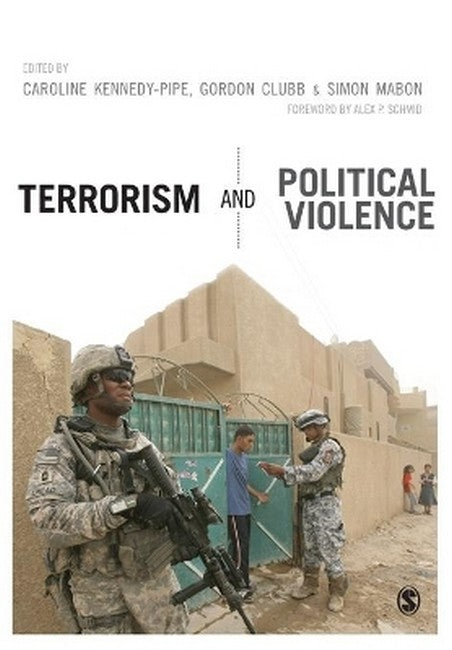Caroline Kennedy-Pipe is a professor of war studies at the University of Hull. She is the university lead on maritime and security issues. She has published extensively on these issues and has been quoted in The Guardian as being 'one of the UK's leading experts in war'. Gordon Clubb is a lecturer in international security at the University of Leeds and is Director of the Terrorism and Political Violence Association. Recently, he has written on the disengagement and de-radicalization of Fatah and the Irish Republican Army. Simon Mabon is a lecturer in international relations at the University of Lancaster. He is the author of Saudi Arabia and Iran: Soft Power Rivalry in the Middle East (I.B. Tauris, 2013), Hizballah: From Islamic Resistance to Government (Praeger, 2014, with Gordon Clubb and James Worrall) and British Foreign Policy (Routledge, 2015, with Mark Garnett). He is Director of the Richardson Institute and a research associate with the Foreign Policy Centre.
Request Academic Copy
Please copy the ISBN for submitting review copy form
Description
SECTION A: APPROACHING THE STUDY OF TERRORISM AND POLITICAL VIOLENCE Locating Terrorism Studies - Simon Mabon Terrorism and Ethics - Gilberto Algar-Faria A History of Terrorism: Ideology, Tactics and Organization - Pola Zafra-Davis Defining Cyberterrorism - Lee Jarvis and Stuart McDonald Essay 1: A Critical Approach: Violence, 'Victims' and 'Innocents' - Marie Breen-Smyth and Samantha Cooke Essay 2: A Critical View of Critical Terrorism Studies - James Lutz Essay 3: The Global War on Terror and State Terrorism - Michael Stohl SECTION B: UNDERSTANDING TERRORISM The 'Root Causes' of Terrorism - Nina Musgrave Supporting Terrorism - Nicole Ives-Allison Terrorism, Communication and the Media - Cristina Archetti Essay 4: IEDs, Martyrs, Civil Wars, and Terrorists - Caroline Kennedy-Pipe Essay 5: Towards Global Jihadism - Bill Braniff and Assaf Moghadam Essay 6: Living with Terror, not Living in Terror: The Impact of Chronic Terrorism on Israeli Society - Dov Waxman SECTION C: HOW TERRORISM ENDS How Terrorism Ends - Sarah Marsden Conflict Resolution and Terrorists as Spoilers - Sophie Whiting Individual Disengagement from Terrorist Groups - Paul Gill, Noemie Bouhana and John Morrison Essay 7: De-Radicalization, Disengagement and the Attitudes-Behavior Debate - Gordon Clubb Essay 8: Drone Warfare - Michael Boyle SECTION D: RESOURCES Resource 1: Study Skills for Dissertations, Essays and Exams - Terry Hathaway Resource 2: Conducting Field Research on Terrorism - Adam Dolnik
This edited volume represents a collection of contributions from highly experienced academics to those at the beginning of their academic career. It covers a very broad spectrum of topics concerning terrorism and political violence, from a multitude of theoretical concepts, tactics and positioning, from how terrorism emerges through to how it ends, and how to approach the study and research of the topics. The book represents a rare opportunity for an all-in-one, up-to-date and informative source on these aspects that impact upon our contemporary lives, which makes it an invaluable source for many - researchers and students through to those with an interest in the matter. -- Dr. Greg Simons This volume provides an illuminating overview of the challenges of teaching and learning about terrorism and political violence. It engages with the causes, dynamics and context of violence and brings theoretical depth to the topic in multiple perspectives. Written in an accessible style, this book is an ideal companion for students of political violence and terrorism studies. -- Emmanuel-Pierre Guittet

